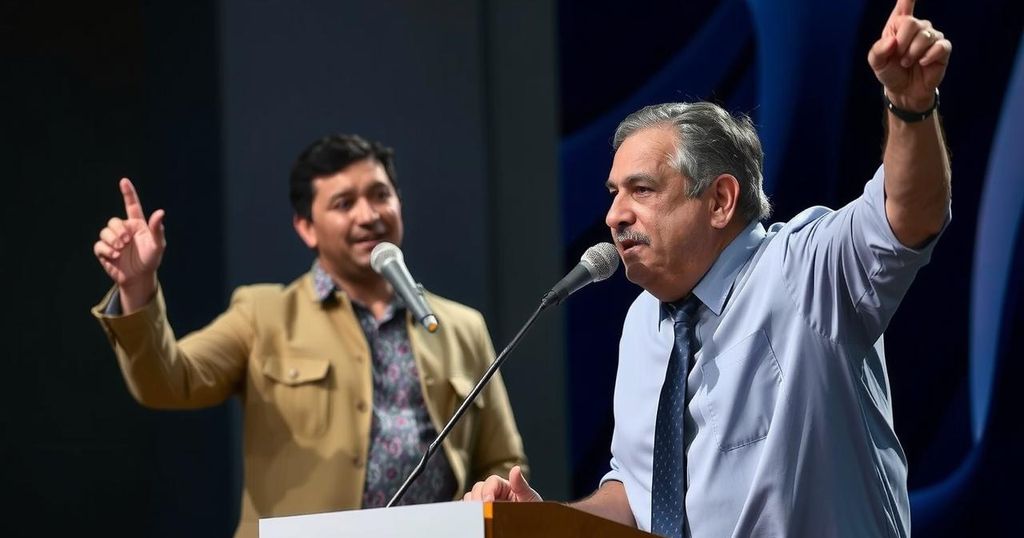Uruguay’s Governing Party Concedes to Left-Wing Challenger Yamandu Orsi

Uruguay’s governing party has conceded to left-wing candidate Yamandu Orsi, ending a five-year conservative rule. Álvaro Delgado acknowledged his defeat, highlighting a significant electoral shift as Orsi prepares to lead the nation, building upon previous Broad Front policies. Voter turnout was high, reflecting global trends of discontent with incumbents amid economic difficulties.
In a recent electoral contest, Uruguay’s governing party has conceded defeat to left-wing challenger Yamandu Orsi, marking a significant shift in leadership after five years under a conservative coalition. Álvaro Delgado, the candidate from the centre-right National Party, acknowledged Orsi’s victory, expressing support for the new leader at a time when electoral counts were still in progress. Orsi’s success represents a return to power for the centre-left Broad Front, which had previously governed for 15 years, during which it gained international recognition for progressive social initiatives, including the legalization of abortion and same-sex marriage.
Mr. Delgado publicly congratulated Orsi, citing a close election race, with approximately 57% of votes counted, as the reason for his concession. Current president Luis Lacalle Pou echoed these sentiments, commending Orsi’s election via social media and inviting cooperation for a smooth transition of power. Voter engagement remained high, with a turnout of 89.4%, in line with compulsory voting laws in Uruguay.
Polls conducted by independent firms indicated that approximately 49% of voters supported Orsi, a former history teacher known for his working-class roots, while Delgado garnered roughly 46%. This shift in power aligns with a global trend of voters expressing disenchantment with incumbent governments, prompted by various socio-economic challenges.
Orsi, while described as leading a ‘new left,’ does not aim for radical reforms and aligns with his predecessor’s views on critical social issues, such as poverty and crime. His policies are poised to blend market-friendly initiatives with welfare programs. Promising to introduce tax incentives to attract investment and proposing social security reforms, Orsi’s approach aims for pragmatism over upheaval, despite some resistance from unions regarding pension reforms. Citizens like Yeny Varone express optimism about Orsi’s leadership, anticipating improved working conditions and social benefits for future generations.
Uruguay has transitioned its political landscape following the recent presidential runoff. The conservative government, led by Luis Lacalle Pou since 2020, has conceded to the left-leaning Broad Front party in a significant electoral defeat. This change is particularly notable as it revokes a five-year term of right-leaning governance that disrupted a long-standing 15-year rule by the Broad Front. The political dynamics in Uruguay reflect broader regional and global trends where voters are increasingly expressing their dissatisfaction with ruling parties, especially in light of post-pandemic economic struggles.
The election results in Uruguay represent a pivotal realignment in its political governance, with Yamandu Orsi of the Broad Front poised to lead as president. The concession by Álvaro Delgado not only signifies a shift in party control but also reflects the voters’ desire for change in the face of economic adversity. Orsi’s moderate approach suggests continuity in several policy areas while aiming for social improvement, positioning him to build upon the previously established foundation laid by the Broad Front.
Original Source: www.expressandstar.com







